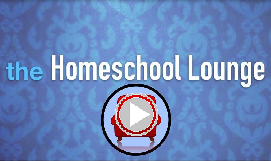1. Is homeschooling legal in South Africa?
Yes. Since 1994, the right for parents to home educate their children was legalised in South Africa through the adoption of the new constitution. In 1996 this right was acknowledged by the introduction of art. 51 of the SA Schools act which explicitly states that parents may register their children for education at home.
2. Should people register for home education?
Yes. The SA Schools Act requires parents to register their children for education at home.
In practice however, many officials at provincial departments have a limited understanding of home education and often require parents to meet all sorts of requirements that are not stipulated by the law. As a result more than 95% of homeschooling parents do not register with the department. It is advised that parents join the Pestalozzi Trust to assist them with the legal aspects of home education, so that the parents can focus on educating their children with a peace of mind.
3. How does homeschooling work?
Homeschooling is different for every family as it depend on the parents educational goals for their children Education is the development of the childs full potential and will therefor be more than just an academic program. It will also include extra murals, socialization, transfer of values, etc.
To achieve their educational goals some families duplicate the traditional structured school system at home, and the children study the same subjects as in the mainstream schools. Other families however follow a totally opposite approach of "un-schooling" which are guided by the child's interest and readiness to learn. Most homeschoolers prefers a flexible eclectic approach that is partly structured but also directed by the child's interest and readiness to learn. They will therefor use a combination of different curriculum material that meet the needs and values of the family and the child.
In practice many families who homeschool have homeschooling friends and are part of a homeschool support group. Support groups meet regularly for social interaction, going on outings or even exchange lesson plans. For many homeschoolers most afternoons are taken up by extra murals like sport, music and pursuing of other interests.
Home education is as diverse as the families themselves.
4. Do I need to be a qualified teacher?
No. Research has found no correlation between the qualification of the parent and the academic performance of the child. Research shows that parental involvement is the variable which has a positive effect on a childs performance. Even parents who have not finished their matric, can homeschool their children up to matric.
5. How do I start?
The first step is for parents to take the child out of school and invest time in their relationship with their child, getting to know them better.
The second step is for parents to equip themselves by reading books, attending seminars or visit a homeschool consultant. Parents should also get support from other homeschoolers by joining a homeschool mailing list and support group.
Thirdly, parents can start homeschooling right away by visiting the library and reading good classical books to their children, explore their childs interests and kindle the love for learning.
Fourthly parents should not buy an expensive curriculum in the first year of homeschooling as they first want to discover their childs learningstyle and the homeschooling approach which will suit their child and family best.
6. Which curriculum is the best?
Research has shown that there are no curriculum that produces better results than another. Parents should choose a curriculum which facilitates learning within a specific child. Every child has a preferred learning style and parents can choose material which will be most suitable for their unique child. Homeschooling consultants offers seminars and personal consultations for guidance in choosing a curriculum.
Parents can join a support group in their area and asks the moms who have been homeschooling for a few years what they are using. They can also organize a visit to look at their homeschool material.The annual homeschooling expos offers a wide variety of educational products.
Parents who decide to start off with a structured curriculum are advised not to buy a complete package for grade 1 to 12 as the needs of the family and child changes over time. Just the grade they need at that stage to see if the curriculum is going to work for them.
Homeschool ABC on this website has an article on how to choose a curriculum.
7. What about matric and university?
There are a number of ways that homelearners can get a matric. One of the most popular forms of matric is the academic matric. When it comes to the academic matric there are two choices, namely a South African matric or the Cambridge matric.
Learners can get a South African National Senior Certificate (NSC) through a number of curriculum suppliers. The duration of this is three years ( grade 10 - 12).
An increasing number of parents choose the Cambridge International Examination (CIE) matric, offered via Cambridge University. In South Africa, students can do two courses namely IGCSE and AS Levels. In broad terms, the Cambridge IGCSE qualification is equivalent to a South African Grade 11 and the Cambridge AS Level is equivalent to a South African Grade 12 (i.e. regular matric). This qualification is acknowledged by the matriculation board and can be use to get admission to university.
Apart from the academic matric, learners can also do an adult matric. There are plans to introduce such a matric in South Africa, but until this matric is available, many parents choose to make use of the American adult matric called the GED. Homeschoolers can prepare themselves for the GED by using an online GED training academy or GED prep books. The GED with an admission letter from an overseas university or together with SAT tests can also be used to get admission to university.
Many homeschoolers pursue tertiary education. Each university and college has their own admission requirements and benchmark tests for all applicants and departments within the university can also set specific requirements to which applicants need to adhere.
8. How much does homeschooling cost?
It depends mostly on the families homeschooling approach, but in general it should not be more than the cost of a public school.
To keep the cost of schooling down some families invest in a good maths and language course (new or second hand) and then supplement the other subjects with free resources on the internet or books from the library. Other families use a unit study program which makes it possible for them to educate their children from different age groups using the same material. If a family uses a separate curriculum for each child home education can become more expensive, especially if they use overseas products.
On the front page of the website is a detailed spreadsheet under the header common topics and cost of homeschooling which will give an estimate of homeschool costs.
9. What about socialization?
Children need to be parented into socially acceptable behavior. Most parents want their children to function well in group setting, have friendships, respect people from all ages, races and both genders. The outcome however depends on the individual child, their environment and with whom the child spend most of their time.
While some homeschoolers have lots of friends others prefer just a few close friendships. Homeschoolers and mainstream school children socialize in much the same way. Both make friends but not at the same place. Homeschool kids mostly make friends at homeschool meet-ups, sport clubs, band practice, church etc, while mainstream school children mostly make friends at school.
The difference between homeschoolers and children who attend state or private schools is that they generally have stronger ties with their families as they spend more time with them while school going children have stronger ties with their peers.
Parents have more time to direct their child's social development as within a peergroup the peers direct the childs social behaviour.
10. Can I be a working mom and homeschool?
Single parents who are committed to homeschool organize a schedule around their work commitments and sometimes involve family or tutors to assist with the education of the child at their home. Many homeschool moms also start a business from home for an extra income.There are also homeschool families who run their business from home. Children get the opportunity to see how a business is run and also get involve in the business where they learn valuable skills.
11. How many homeschoolers are there?
According to the 2011 census, there were about 57 000 homelearners in South Africa. By 2017 this number has probably grown to about 100 000. In the USA there are already more than 2 million homelearners. All over the world, home education is the fastest growing type of education.
Look at the questionss to homeschoolers and pros and cons of homeschooling which are also under this header for more questions and answers.
Yes. Since 1994, the right for parents to home educate their children was legalised in South Africa through the adoption of the new constitution. In 1996 this right was acknowledged by the introduction of art. 51 of the SA Schools act which explicitly states that parents may register their children for education at home.
2. Should people register for home education?
Yes. The SA Schools Act requires parents to register their children for education at home.
In practice however, many officials at provincial departments have a limited understanding of home education and often require parents to meet all sorts of requirements that are not stipulated by the law. As a result more than 95% of homeschooling parents do not register with the department. It is advised that parents join the Pestalozzi Trust to assist them with the legal aspects of home education, so that the parents can focus on educating their children with a peace of mind.
3. How does homeschooling work?
Homeschooling is different for every family as it depend on the parents educational goals for their children Education is the development of the childs full potential and will therefor be more than just an academic program. It will also include extra murals, socialization, transfer of values, etc.
To achieve their educational goals some families duplicate the traditional structured school system at home, and the children study the same subjects as in the mainstream schools. Other families however follow a totally opposite approach of "un-schooling" which are guided by the child's interest and readiness to learn. Most homeschoolers prefers a flexible eclectic approach that is partly structured but also directed by the child's interest and readiness to learn. They will therefor use a combination of different curriculum material that meet the needs and values of the family and the child.
In practice many families who homeschool have homeschooling friends and are part of a homeschool support group. Support groups meet regularly for social interaction, going on outings or even exchange lesson plans. For many homeschoolers most afternoons are taken up by extra murals like sport, music and pursuing of other interests.
Home education is as diverse as the families themselves.
4. Do I need to be a qualified teacher?
No. Research has found no correlation between the qualification of the parent and the academic performance of the child. Research shows that parental involvement is the variable which has a positive effect on a childs performance. Even parents who have not finished their matric, can homeschool their children up to matric.
5. How do I start?
The first step is for parents to take the child out of school and invest time in their relationship with their child, getting to know them better.
The second step is for parents to equip themselves by reading books, attending seminars or visit a homeschool consultant. Parents should also get support from other homeschoolers by joining a homeschool mailing list and support group.
Thirdly, parents can start homeschooling right away by visiting the library and reading good classical books to their children, explore their childs interests and kindle the love for learning.
Fourthly parents should not buy an expensive curriculum in the first year of homeschooling as they first want to discover their childs learningstyle and the homeschooling approach which will suit their child and family best.
6. Which curriculum is the best?
Research has shown that there are no curriculum that produces better results than another. Parents should choose a curriculum which facilitates learning within a specific child. Every child has a preferred learning style and parents can choose material which will be most suitable for their unique child. Homeschooling consultants offers seminars and personal consultations for guidance in choosing a curriculum.
Parents can join a support group in their area and asks the moms who have been homeschooling for a few years what they are using. They can also organize a visit to look at their homeschool material.The annual homeschooling expos offers a wide variety of educational products.
Parents who decide to start off with a structured curriculum are advised not to buy a complete package for grade 1 to 12 as the needs of the family and child changes over time. Just the grade they need at that stage to see if the curriculum is going to work for them.
Homeschool ABC on this website has an article on how to choose a curriculum.
7. What about matric and university?
There are a number of ways that homelearners can get a matric. One of the most popular forms of matric is the academic matric. When it comes to the academic matric there are two choices, namely a South African matric or the Cambridge matric.
Learners can get a South African National Senior Certificate (NSC) through a number of curriculum suppliers. The duration of this is three years ( grade 10 - 12).
An increasing number of parents choose the Cambridge International Examination (CIE) matric, offered via Cambridge University. In South Africa, students can do two courses namely IGCSE and AS Levels. In broad terms, the Cambridge IGCSE qualification is equivalent to a South African Grade 11 and the Cambridge AS Level is equivalent to a South African Grade 12 (i.e. regular matric). This qualification is acknowledged by the matriculation board and can be use to get admission to university.
Apart from the academic matric, learners can also do an adult matric. There are plans to introduce such a matric in South Africa, but until this matric is available, many parents choose to make use of the American adult matric called the GED. Homeschoolers can prepare themselves for the GED by using an online GED training academy or GED prep books. The GED with an admission letter from an overseas university or together with SAT tests can also be used to get admission to university.
Many homeschoolers pursue tertiary education. Each university and college has their own admission requirements and benchmark tests for all applicants and departments within the university can also set specific requirements to which applicants need to adhere.
8. How much does homeschooling cost?
It depends mostly on the families homeschooling approach, but in general it should not be more than the cost of a public school.
To keep the cost of schooling down some families invest in a good maths and language course (new or second hand) and then supplement the other subjects with free resources on the internet or books from the library. Other families use a unit study program which makes it possible for them to educate their children from different age groups using the same material. If a family uses a separate curriculum for each child home education can become more expensive, especially if they use overseas products.
On the front page of the website is a detailed spreadsheet under the header common topics and cost of homeschooling which will give an estimate of homeschool costs.
9. What about socialization?
Children need to be parented into socially acceptable behavior. Most parents want their children to function well in group setting, have friendships, respect people from all ages, races and both genders. The outcome however depends on the individual child, their environment and with whom the child spend most of their time.
While some homeschoolers have lots of friends others prefer just a few close friendships. Homeschoolers and mainstream school children socialize in much the same way. Both make friends but not at the same place. Homeschool kids mostly make friends at homeschool meet-ups, sport clubs, band practice, church etc, while mainstream school children mostly make friends at school.
The difference between homeschoolers and children who attend state or private schools is that they generally have stronger ties with their families as they spend more time with them while school going children have stronger ties with their peers.
Parents have more time to direct their child's social development as within a peergroup the peers direct the childs social behaviour.
10. Can I be a working mom and homeschool?
Single parents who are committed to homeschool organize a schedule around their work commitments and sometimes involve family or tutors to assist with the education of the child at their home. Many homeschool moms also start a business from home for an extra income.There are also homeschool families who run their business from home. Children get the opportunity to see how a business is run and also get involve in the business where they learn valuable skills.
11. How many homeschoolers are there?
According to the 2011 census, there were about 57 000 homelearners in South Africa. By 2017 this number has probably grown to about 100 000. In the USA there are already more than 2 million homelearners. All over the world, home education is the fastest growing type of education.
Look at the questionss to homeschoolers and pros and cons of homeschooling which are also under this header for more questions and answers.
There are no replies made for this post yet.
Events
Legal & Research
Centres
Homeschool ABC
Support
Curriculums
GED through Learnalot - Grade 12 ...
Why enrol with Learnalot? With Learnalot, you have the flexibility ...
Elroi Academy (Gr 8 - 12)
Elroi Academy – Top-Rated Distance Education Provider in South ...
LEARNING TO READ EASY WITH THE ...
Parents and educators – these popular reading books are ...
Has no content to show!
































